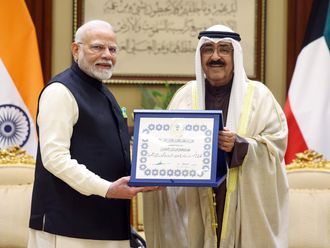
Dubai: The Kuwaiti Ministry of Health has announced comprehensive guidelines for pilgrims preparing for the upcoming Hajj season (1444 AH-2023 AD). With the aim of ensuring the health and safety of pilgrims, the guidelines outline several key measures to be followed during the sacred journey.
According to the ministry’s guidelines, all pilgrims must be fully vaccinated against COVID-19, meningitis, bacterial pneumonia, and seasonal influenza at least 10 days prior to embarking on their Hajj pilgrimage. It is mandatory for pilgrims to carry their vaccination certificates with them throughout their trip.
Pilgrims suffering from chronic diseases, such as diabetes or heart disease, are advised to consult their doctors before travelling. They should also ensure an ample supply of their required medications and carry detailed and up-to-date reports of their health condition, including information about their health problems and prescribed doses.
To prevent respiratory infections, the ministry emphasises the importance of wearing face masks, using tissues while coughing or sneezing, and frequently washing hands with soap, water, and disinfectants during the entire spiritual journey.
Pilgrims are urged to refrain from touching their eyes, mouths, or noses with their hands and to avoid direct contact with individuals displaying symptoms of illness.
In addition, the ministry encourages pilgrims to stay hydrated by consuming large quantities of water, liquids, and juices. It is recommended to incorporate water-rich foods like fruits and vegetables into their diet. Pilgrims are also advised to avoid direct exposure to the sun, heat, and crowded areas.
Lastly, the ministry urges pilgrims to strictly adhere to the precautionary measures and instructions issued by the relevant Saudi authorities. Compliance with these guidelines is crucial in preserving the health and safety of all pilgrims during the Hajj season.






